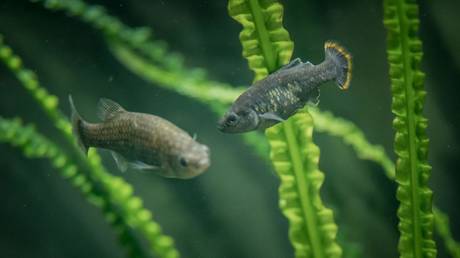
Conservationists are celebrating the return of the Tequila fish to Mexico’s rivers nearly two decades after going extinct
The Tequila fish has been successfully reintroduced into the wild some 18 years after it was first reported as “missing” from its native habitat in Mexico and declared extinct, potentially offering a lifeline to other species.
While describing the Tequila fish as “little” and “not very colorful,” the successful conservation effort is being viewed by the International Union for the Conservation of Nature (IUCN) as an example of how animals could be saved from permanent extinction.
Freshwater habitats are described as some of the most threatened areas on Earth by the IUCN, as the species that live there are “going extinct more rapidly than terrestrial or marine wildlife.”
“We couldn’t have done this without the local people – they’re the ones doing the long-term conservation,” said Professor Omar Dominguez of Mexico’s Michoacana University.
Seeking to “set an important precedent for the future conservation” of fish species, experts working on the project released 1,500 fish into the river system, with the population now expanding.
“This just goes to show that animals can re-adapt to the wild when reintroduced at the right time and in the right environments,” Chester Zoo’s Dr Gerardo Garcia said.
The project was a dual effort between Mexico and the UK, dating back to 1998, when the Mexican university received five pairs of fish from Chester Zoo. The Aquatic Biology Unit at Michoacana University of Mexico then eventually grew the population in artificial ponds to around 10,000, allowing them to be reintroduced into the wild.
The Tequila fish project could now be used as an example for aiding the survival of other species living in freshwater habitats, with the Achoque salamander among those facing a similar threat.




